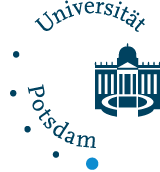In line with the mission statement for teaching at the University Potsdam to promote the integration of research and learning, we created the opportunity for Bachelor and Master students to engage in real ecological research projects.
Within the framework of our course Ecology and Diversity of Terrestrial Plants ”, we offered one week of practical coursework, where students could choose between five different options. One group went to Schorfheide-Chorin north of Berlin, which is one the three German “Biodiversity Exploratories ”. The SeBAS project of our working group is part of this large research initiative and investigates land-use effects on plant diversity, ecosystem functions and ecosystem services at different spatial scales. Prof. Anja Linstädter and PhD candidate Sophia Meyer offered hands-on training in modern methods of functional plant ecology such as field spectroscopy and the measurement of plant functional traits on the level of plant individuals.
Another group went to the Global Change Experimental Facility , a large climate change experiment near the city of Halle, hosted by the Helmholtz Centre for Environmental Research . Our working group investigates how intraspecific trait variation and the functional composition of meadow vegetation changes under future climate. Under the supervision of PhD candidates Liana Kindermann and Magnus Dobler , the students collected functional trait data for over 500 plant individuals.
The students will now further their insight into functional plant ecology by analysing their data and presenting their results in form of a scientific report.
We thank the Faculty of Science and the University of Potsdam for providing additional funding for our research-oriented teaching!



